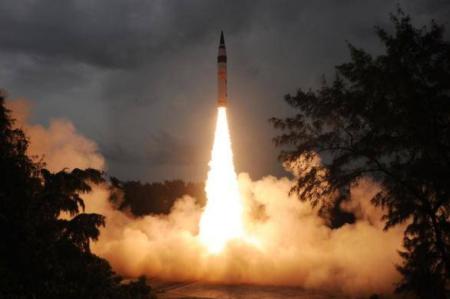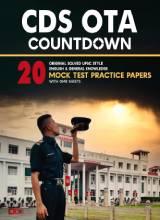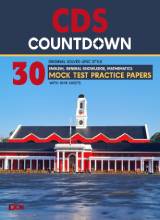Agni-V Long Range Ballistic Missile: Everything to Know
How's the Josh Warriors?
Hello Folks, I hope you are applying every inch of hard work and effort to earn the prestigious uniform of the Indian Armed Forces. Today, I am here to profile one of the important long range ballistic missiles i.e. Agni-V
DEVELOPER
Defence Research and Development Organisation (DRDO)
FIRST TEST LAUNCH
April 2012
LAUNCH WEIGHT
50 t
WARHEAD WEIGHT
1,000+ kg
RANGE
5,000+ km
- The Agni-V is a Long Range Ballistic Missile (LRBM) being developed indigenously by the Defence Research and Development Organisation (DRDO) of India.
- Agni-V is the first long range intercontinental ballistic missile of India and is said to be capable of carrying a nuclear warhead.
- Agni-V was successfully test fired from a test range at Wheeler Island, off the coast of Orissa in eastern India, in April 2012.
- With the successful launch of Agni-V, India has joined the Elite Nuclear Club of nations such as the US, Russia, China, France and UK, which possess LRBM capability. Though the official range of the missile is 5,000 km, China has claimed that the Indian missile has a range of 8,000 km.
Development of the Agni-V LRBM:
- The development of Agni-V LRBM began in 2008. Although developed as an extension to the Agni-III Intermediate Range Ballistic Missile (IRBM), Agni-V is an entirely new design developed using inputs from Agni-III.
- Agni-V is a three-stage solid-propellant missile. The first stage was adapted from Agni-III and two stages were adapted from composite material. About 60% of the sub-systems used in Agni-V are similar to those of Agni-III.
- The remaining systems, including the Ring Laser Gyro based Inertial Navigation System (INS) and Accelerometer, were developed using advanced technologies by the DRDO.
- The three solid-propellant composite rocket motor stages of the missile were independently tested by mid 2011.
- The intercontinental missile has a length of 17.50 m, a diameter of 02 m and a launch weight of 50 t.
- The intercontinental missile can carry a payload of more than 1,000 kg and has a range of 5,000 km, which can be further increased by reducing the payloads.
MIRVs of the Agni-V LRBM:
- Agni-V is attached with Multiple Independent Re-Entry Vehicles (MIRVs).
- MIRVs can carry three to ten independent nuclear warheads. Each warhead can be assigned to engage different targets located hundred of kilometres away from each other.
- The Two warheads can also be assigned to a single target for a better strike impact.
- MIRVs provide a second strike capability against hard targets. MIRV warheads are also equipped with electronic equipment for jamming hostile radars.
Propulsion of the Agni-V LRBM:
- Agni-V is powered by three solid fuelled engines and uses a composite case solid rocket motor for the third stage of an engine.
- The first stage engine propels the missile up to 40 km in height, while the second and third stages lever it to 150 km and 300 km high respectively.
- The missile finally reaches 800 km and then re-enters the Earth’s atmosphere to fly towards the target.
Launch Platform used for Agni-V LRBM:
- Agni-V is a canister launched, road-mobile missile similar to the Dongfeng-31A of China. The launch platform is the 8 x 8 Tatra Transporter Erector Launcher (TELAR) rail mobile launcher.
- The canister is made of maraging steel and provides a completely airtight atmosphere to preserve the missile for years.
- The canister is designed to withstand 300 t to 400 t of thrust generated at the time of missile launch.
Navigation systems of the Agni-V LRBM:
- Agni-V is equipped with a Ring Laser Gyro based Inertial Navigation System (INS) and the Modern Micro Navigation system (MINS).
- The navigation system, the onboard high-speed computer and the fault tolerant software were all developed indigenously by the India's Defence Research and Development Organisation.
I hope the article was helpful for all the defence aspirants, if you have any doubt at all or you want to suggest anything then please leave a comment to help you in least possible time!!
Keep Your Motivation High & Stay Updated to the Defence Direct Education
⚔ Jai Hind ⚔






 Order Now on Amazon
Order Now on Amazon
